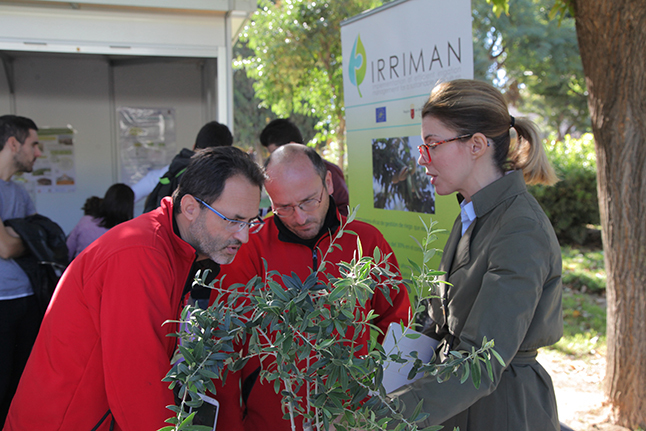The Polytechnic University of Cartagena leads a European project covered by the Life + Program, called Irriman (Implementation of Efficient Irrigation Management for a Sustainable Agriculture), which arises from the current need for modernization of irrigation in search of a double efficiency: water and energy, in the Spanish southeast.
The project, which will run until December 2017, integrates as partners the Ministry of Water, Agriculture, Livestock and Fisheries of the Region of Murcia, the CEBAS-CSIC, the Community of Irrigators of Genil-Cabra (located in the basin of the Guadalquivir), the National and Euro-Mediterranean Federation of Irrigation Communities (FENACORE) and the University of Córdoba. The Irrigation Communities of Miraflores (Jumilla) and Campotéjar (Molina de Segura) also participate, where the trials are carried out.
The objective of the Irriman project is to implement, demonstrate and disseminate a sustainable irrigation strategy based on deficit irrigation to promote its acceptance on a large scale and its use in the woody crops of Mediterranean agroecosystems, characterized by water scarcity, without affect the quality standards required by export markets.
The initiative is not part of the limited study of an experimental farm, but is based on its actual application in up to 15,000 hectares of irrigated land in Jumilla, Córdoba and Molina de Segura.
So far, it has been achieved that once the irrigation system has been tested, the programming of sustainable irrigation and the adjustment of the amount of irrigation water required, according to the measurements of the sensors used, will be transferred to the rest of the crops. Communities of Irrigators involved. The interaction between sustainable irrigation and environmental conditions, water and energy consumption, the amount of runoff water and quality, the leaching of NO3 and the capacity of the soil to fix carbon have been evaluated. The yields of the crops and the final quality of the fruit in the harvest have also been controlled in order to verify the effectiveness of the sustainable irrigation strategy.
The continuous measurements of the vegetative growth, the physical-chemical parameters of the fruit and the yield of the crop make possible that the irrigation can be adjusted in each moment, if it is necessary, for its adaptation to the export quality standards. As a final step, a model will be created for its use by the irrigation communities so that they can apply an efficient irrigation for sustainable agriculture in all fields.


